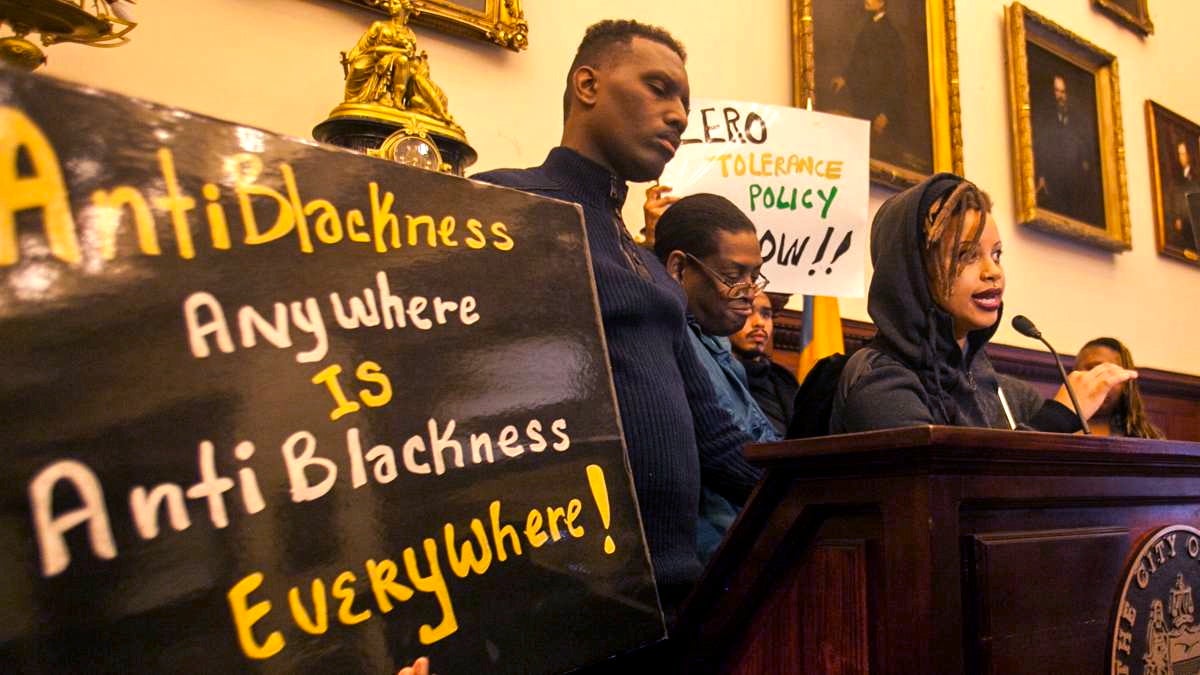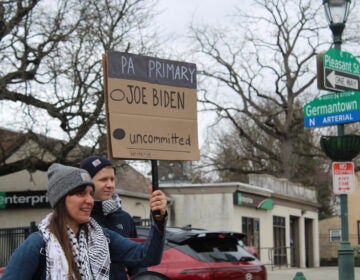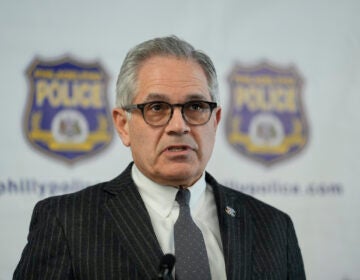Philly sets up new commission to help improve service to LGBT community

Activists representing Philly Black Lives Matter, the Black and Brown Workers Collective, and the Coaliton for REAL Justice call for a change in Philly LGBT leadership after racist incidents in the Gayborhood last October. (Brad Larrison for NewsWorks, file)
After weeks of criticism for its handling of racism in the Gayborhood, Philadelphia’s Office of LGBT Affairs will accept applications from those wishing to volunteer on the city’s new Commission on LGBT Affairs.
Mayor Jim Kenney will appoint 15 to 25 people to serve on the commission, which will advise city officials on ways to boost the LGBT community’s access to government resources and communication with the city; inform city agencies of LGBT needs and help agencies develop action plans; and increase the city’s communication with LGBT citizens and groups who aren’t on the commission or in city government “so all voices are heard.”
Kenney’s office, along with the Office of Diversity & Inclusion and the Office of Public Engagement, will choose commission members who “reflect the diversity of the LGBT community, including members who represent the transgender, gay, lesbian, bisexual, asexual, queer, and intersex communities, as well as diversity in ethnicity, religion, race, gender, disability, profession, citizenship status, socioeconomic status, geography, housing status and age.
“The commission will include or consult with experts in relevant fields, such as racial justice, housing, youth development, HIV prevention, mental health, business, law, and policy,” according to a statement from Kenney’s office.
“In order to fully serve the many needs of the city’s diverse LGBT community, we need an array of voices and perspectives to inform and advise us,” Kenney said. “The commission will provide us a broad, as well as nuanced, view of issues impacting the lives of LGBT residents.”
The commission also will create working groups to address racism in the LGBT community; homeless and transient LGBT youth; and transgender equality — concerns raised by activists who have disrupted events to call for the ouster of Nellie Fitzpatrick, the Office of LGBT Affairs’ director.
People can apply to join the commission here. The application deadline is Nov. 4, and members will be chosen by the end of the year.
“I look forward to welcoming a diverse group of individuals that will help build the capacity of city government to recognize, address and meet the needs and concerns of all in the LGBT community,” Fitzpatrick said.
LGBT people of color have complained for years of racism in their community, and the issue began simmering again in the summer when Gayborhood nightclubs, including Woody’s and iCandy, began enforcing allegedly racist dress codes. A 3-year-old video of iCandy owner Darryl DePiano using a racial slur in private conversation surfaced last month, further enraging the community.
The commission is the latest in several measures city officials have undertaken this month in response. A public hearing, held by the Philadelphia Commission on Human Relations, is scheduled Oct. 25 at Liberty Resources, 112 N. 8th St., Suite 600, in Center City, for the community to air its concerns about racism and discrimination. Several bar owners have been subpoenaed to appear.
Jason Culler, founder of Social Life Entertainment, which organizes events for LGBT people of color, said he’s considering applying for a commission appointment.
“That is a great start to building broken relationships between black and brown LGBTQ people and the city,” said Culler of Olney. “Do I think it will fix all the issues in the community? No.”
There’s a quicker fix than commissions and hearings, he added.
“They need to act,” Culler said. “They need to have direct action against the bar owners and the clubs and enforce the laws they already have that say no one can discriminate against people. They need to enforce those laws.”
WHYY is your source for fact-based, in-depth journalism and information. As a nonprofit organization, we rely on financial support from readers like you. Please give today.




